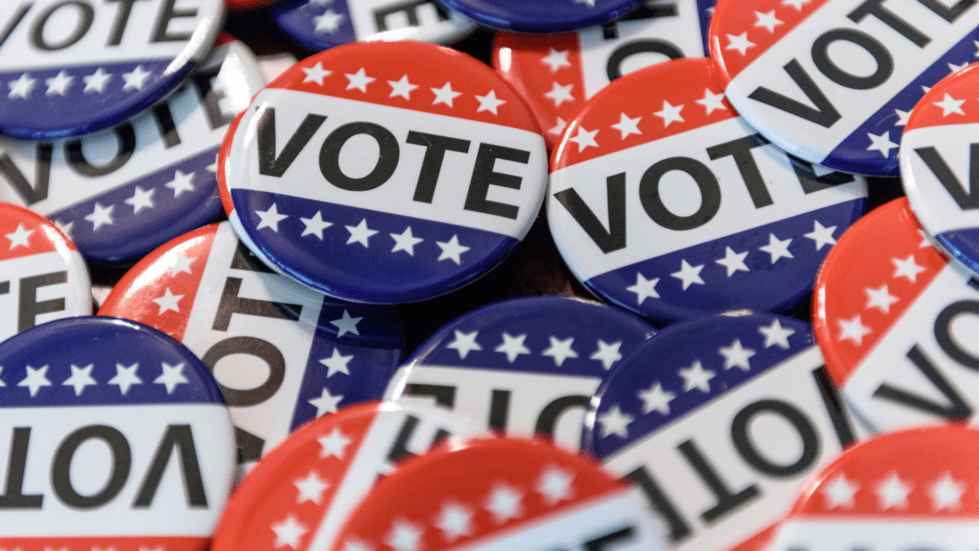
A bill that would have allowed non-aligned voters to cast a ballot in Democratic or Republican primaries didn’t survive a committee vote Wednesday.
A Delaware House panel on Wednesday voted down a bill to open voting in Delaware’s primary elections to unaffiliated voters.
State Rep. Michael Smith, R-Newark, introduced the legislation with Reps. Bill Bush, D-Cheswold, and Sean Matthews, D-Middletown.
But despite House Bill 43’s bipartisan sponsorship, the House Administration committee rejected it three-to-two along party lines with committee Democrats opposed.
Currently, a Delaware voter can vote in a major-party primary if he or she has registered as a member of the Democratic or Republican Party.
About 72 percent of the state’s voters thus can vote in the public nominating election of their chosen party.
As of June 1, 170,160 voters met the state Department of Elections’ description of “no party” voters.
Under HB 43, they would have become able to choose to participate yearly in either the Democratic or GOP primary.
Smith said he wanted to open Republican and Democratic primaries to unaffiliated Delawareans partly because many voters affiliate with a party despite not feeling steadfast loyalty to that party.
Carney vs. Markell primary
He recalled that when current Gov. John Carney and former Gov. Jack Markell ran against each other for the Democratic gubernatorial nomination in 2008, many First Staters changed their party registration to Democratic merely to have a say in that race.
(The general election was uncompetitive, with Republican William Swain Lee garnering only 32% of the vote that year.)
Smith said he hears from many people who simply want to remain free of party identity while still getting to play a role in the major-party nominating process.
“While you see some ebbs and flows of unaffiliated voters or Republicans or Democrats going to Democrat or Republican in a lot of cases, the one thing you are seeing is the large growth of people wanting to become unaffiliated, independent voters,” he told panel members. “And that’s mainly because of the temperature in Washington, D.C. and sometimes the temperatures we see in the state. I wouldn’t say any of the people in this room are at fault about that but there are a lot that are.”
He suggested states that have open primaries more often see candidates treat campaigning as a “job interview” with voters rather than a forum for “mudslinging.”
Many voters who might sound like they were covered by the bill would actually have stayed unaffected.
Statewide, 10,722 voters are registered as “Independent.” But the Independent Party of Delaware is a recognized and ballot-eligible party, as is Non-Partisan Delaware, with which 1,163 Delawareans affiliate. The centrist party No Labels also has secured ballot access and boasts 1,756 residents as members.
Delaware’s ballot-eligible parties, including the aforementioned as well as the Conservatives and the Libertarians, pick their general-election candidates at nominating conventions.
But anyone identifying with a minor political party — ballot-eligible or not — would not have gained access to primary voting under the Smith legislation.
House Minority Whip Lyndon Yearick, R-Camden, said he wasn’t sure how he would have voted on the reform had it reached the House floor, but he supported it in committee to facilitate more debate on the topic.
House Minority Leader Mike Ramone, R-Pike Creek, a bill cosponsor, joined his Republican colleague in favor of the measure.
Ramone, now a gubernatorial candidate, recalled being an unaffiliated voter earlier in life but registering as a Republican to vote for a family acquaintance in a primary.
“Anything that enhances people’s opportunity to participate, and then maybe get engaged and then get more excited, I think is important,” he said.
RELATED STORY: GOP moves to cut realty transfer tax tossed onto trash heap
Panel Democrats objected to the bill as a dilution of the ability of those who identify as party members to decide their parties’ standard bearers going into a general election.
“It kind of takes away the ability for a Republican or Democrat Party to choose the person that they want to represent them,” said House Speaker Valerie Longhurst, D-Bear.
Committee Chair Melissa Minor-Brown, D-New Castle, and Vice Chair Kerri Evelyn Harris, D-Dover, joined Longhurst in opposition.
Smith emphasized that a Democratic legislative intern initially suggested the open-primary idea to him. Rep. Sophie Phillips, a Christiana Democrat, was among the bill’s cosponsors.
According to the National Conference of State Legislatures, the First State is one of 10 with a strictly closed-primary system; others include neighboring Pennsylvania and New Jersey.
Nine other states, including Maryland, operate partially closed nomination contests with parties choosing before each election cycle whether or not to include no-party electors.
Legislation in Pennsylvania’s General Assembly to open primaries to unaffiliated voters received a party-line committee vote with Democrats in favor last October but a vote of the full chamber has yet to occur.
Share this Post




